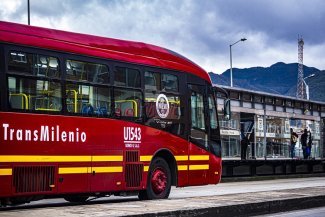Global labour movement representatives and Turkish unions officially launched the Turkey Labour 20 (L20) in Ankara on Wednesday.
Joined by top Turkish government officials, including Deputy Prime Minister Ali Babacan (responsible for the economy), labour leaders laid out their key demands for the G20 during Turkey’s presidency of the organisation in 2015.
“Like the source of many problems, we know the solutions must also be sought at the global level,” Ergün Atalay, president of TÜRK-İŞ and president of the L20 Turkey Organization Committee, told the L20 meeting.
“To the heads of state and governments at the global level, we will convey our demands that workers and their families receive their share of the benefits of economic growth and globalisation, and that they be able to work in an organised way and in conditions worthy of human dignity,” Atalay said.
The L20 is an ‘engagement group’ of the G20, comprised of labour organisations from G20 member countries, convened by the International Trade Union Confederation (ITUC) and Trade Union Advisory Committee (TUAC) to the Organization for Economic Cooperation and Development (OECD).
During Turkey’s presidency of the G20, the L20 Turkey Organization Committee consists of the Confederation of Turkish Trade Unions (TÜRK-İŞ), Turkey’s Confederation of Progressive Trade Unions (DISK), and HAK-İŞ.
The global financial crisis and austerity policies adopted in response have had a disproportionately negative impact on workers, not least by increasing pressure in the form of subcontracting, outsourcing, and informal employment, labour leaders told the meeting.
A 2014 L20 tracking report found half of the G20’s policies to be “ineffective”.
“Inequality makes sustainable growth impossible,” Babacan said in his remarks to the L20 meeting.
Growth is sustainable when it benefits every segment of society, Babacan said.
“Otherwise, we are talking about growth that’s as short-lived as a hay fire.”
On one hand the unions were pleased with the launch.
“The deputy prime minister recognised the scourge of unemployment and inequality, and that jobs equal growth,” ITUC General Secretary Sharan Burrow told Equal Times following the L20 launch.
Following the unusual decision of the Australian presidency of the G20 to lock unions out of formal talks with G20 leaders, Burrow said she was also “heartened” by Turkey’s “absolute commitment” to hold a joint labour and finance ministers meeting.
She did note, however, that the G20 faces a particular challenge in creating jobs during the transition to a low-carbon economy.
Home truths
But as the L20 launch got under way, Turkish unions called on the government to acknowledge the fact that working conditions in Turkey are amongst the most dangerous in the world.
“In 2013 in Turkey 1356 insured workers were killed in workplace accidents. In 2014 there were more. This makes Turkey third in the world and first in Europe in terms of deadly work accidents,” Atalay told the L20 meeting, listing occupational health and safety, training, social security and health care as key concerns to be brought to the G20.
The ITUC Global Rights Index ranks Turkey as having “no guarantee of rights”, and characterises the country as among “the worst countries in the world to work in.”
While Babacan was meeting with the L20, a crowd of Birleşik Metal-İş union members gathered outside the Ankara hotel as part of a series of demonstrations across the Turkish capital to protest the Turkish government’s recent decision to outlaw a metal workers’ strike on the grounds that the strike is considered a threat to national security. Metal workers at 38 firms began a strike on 29 January 2015.
“In a country which holds the G20 presidency it is not acceptable to have all these violations of trade union rights. The strike ban was too much. A strike is the last step for workers to defend their rights. If we don’t have the right to strike we are slaves,” said Kivanc Eliacik, of DISK’s International Relations department.
Eliacik also noted that Babacan was a signatory to the Turkish cabinet decision banning the strike for 60 days.
The ITUC said that representations were made to the deputy prime minister on this matter.
“Clearly, the international labour community supports workers’ right to strike,” said Burrow.
“We also recognise that the solution will come with dialogue and negotiation. The right to strike is fundamental to democracy.”








